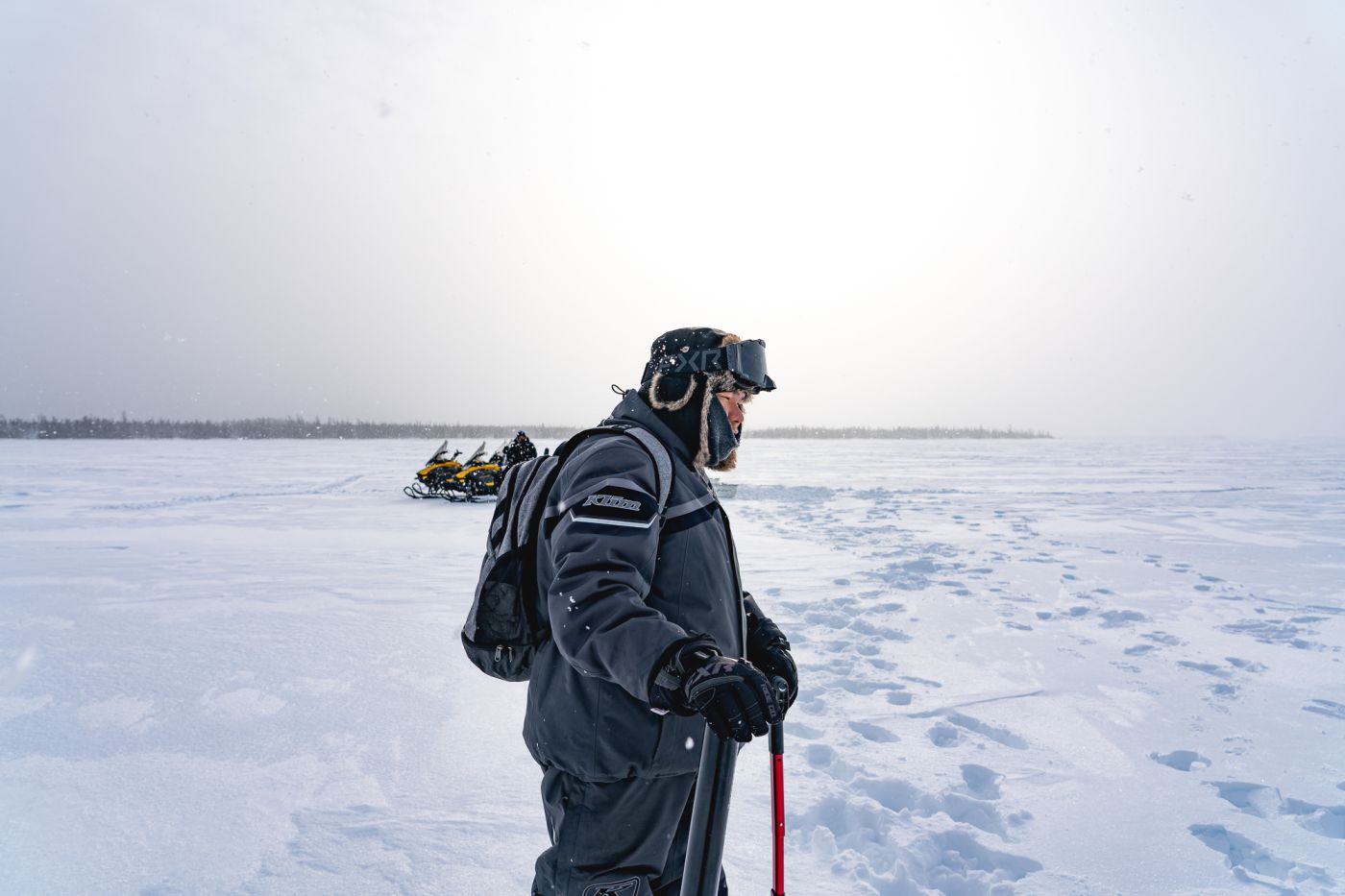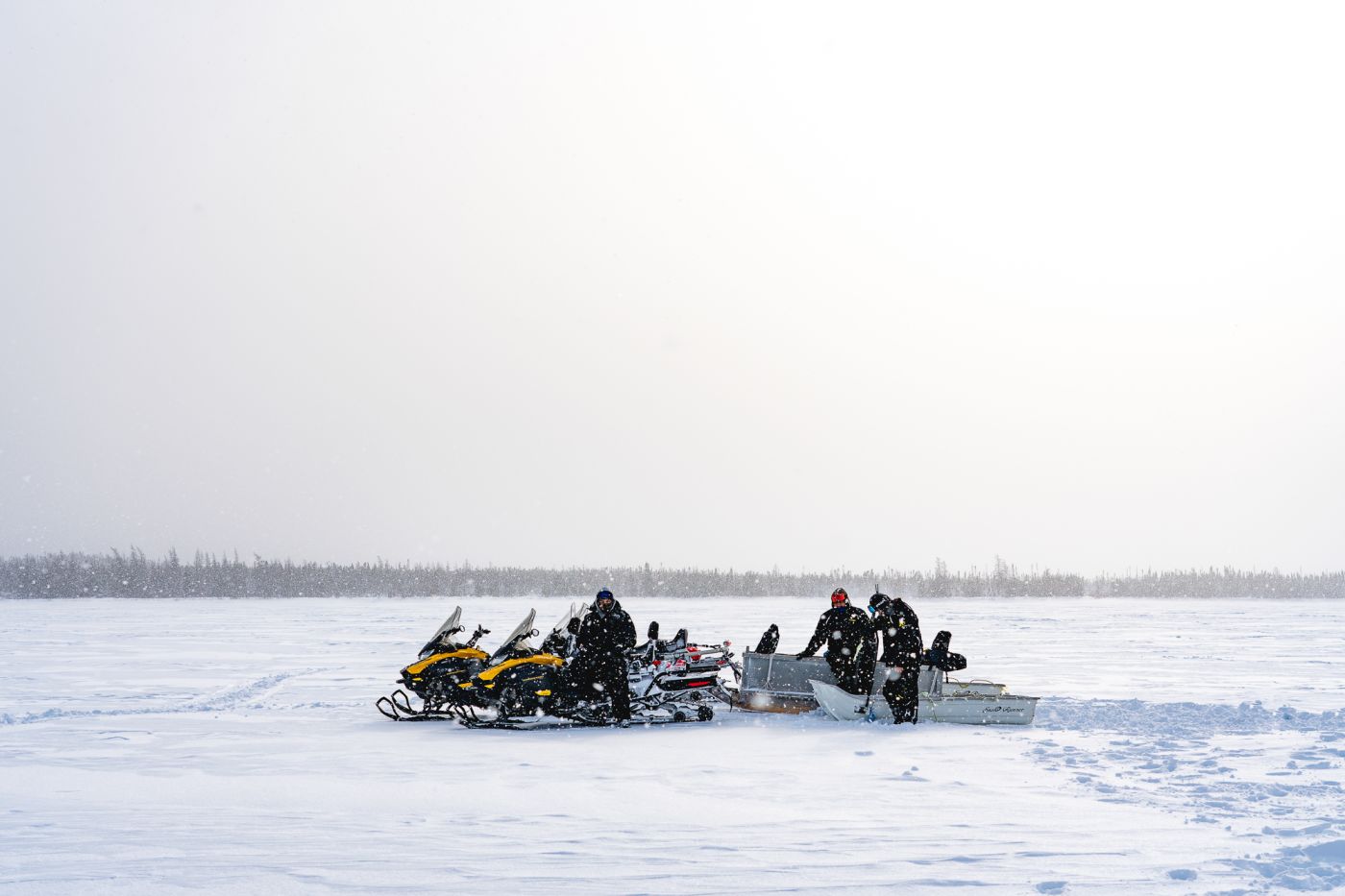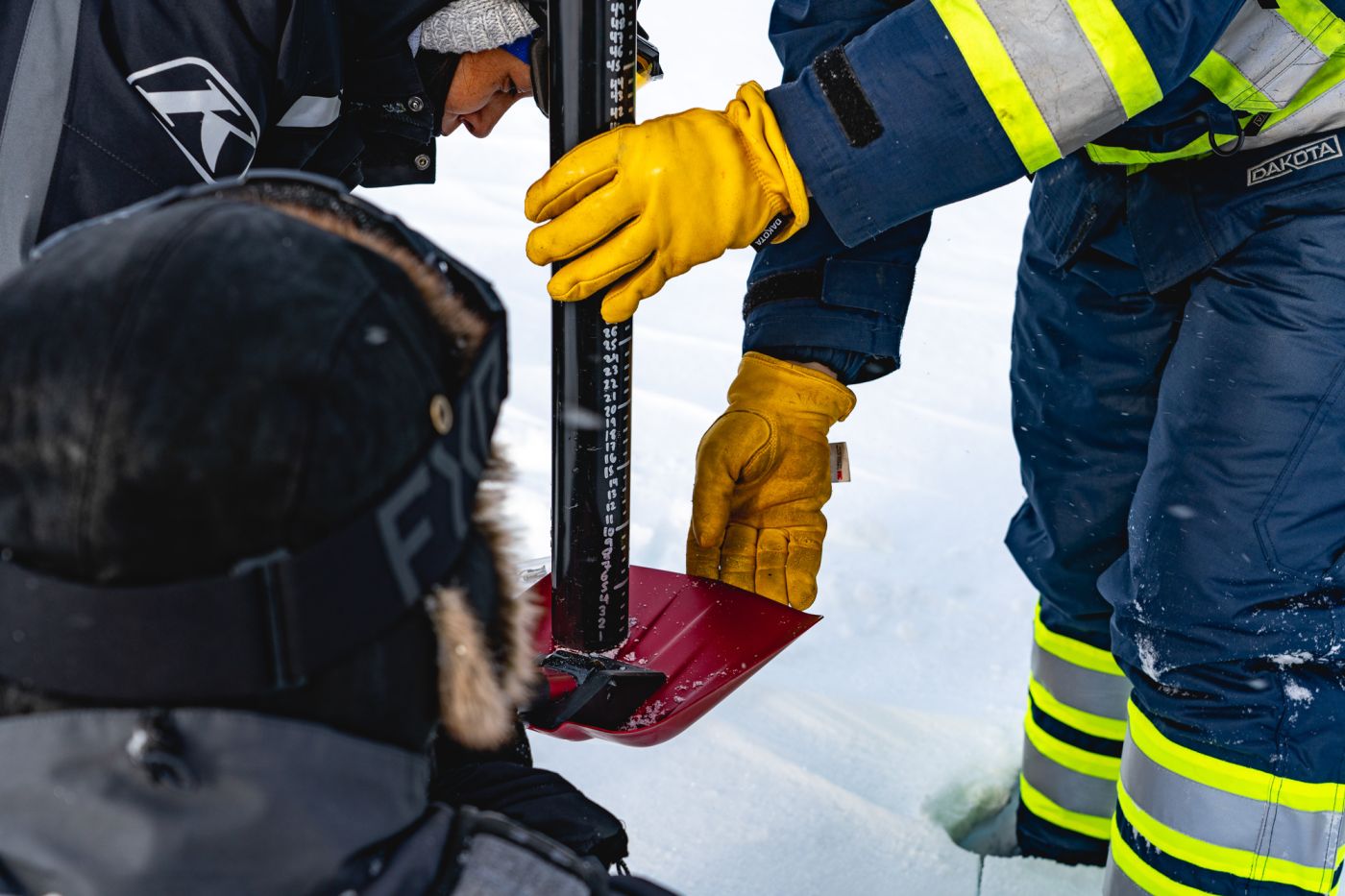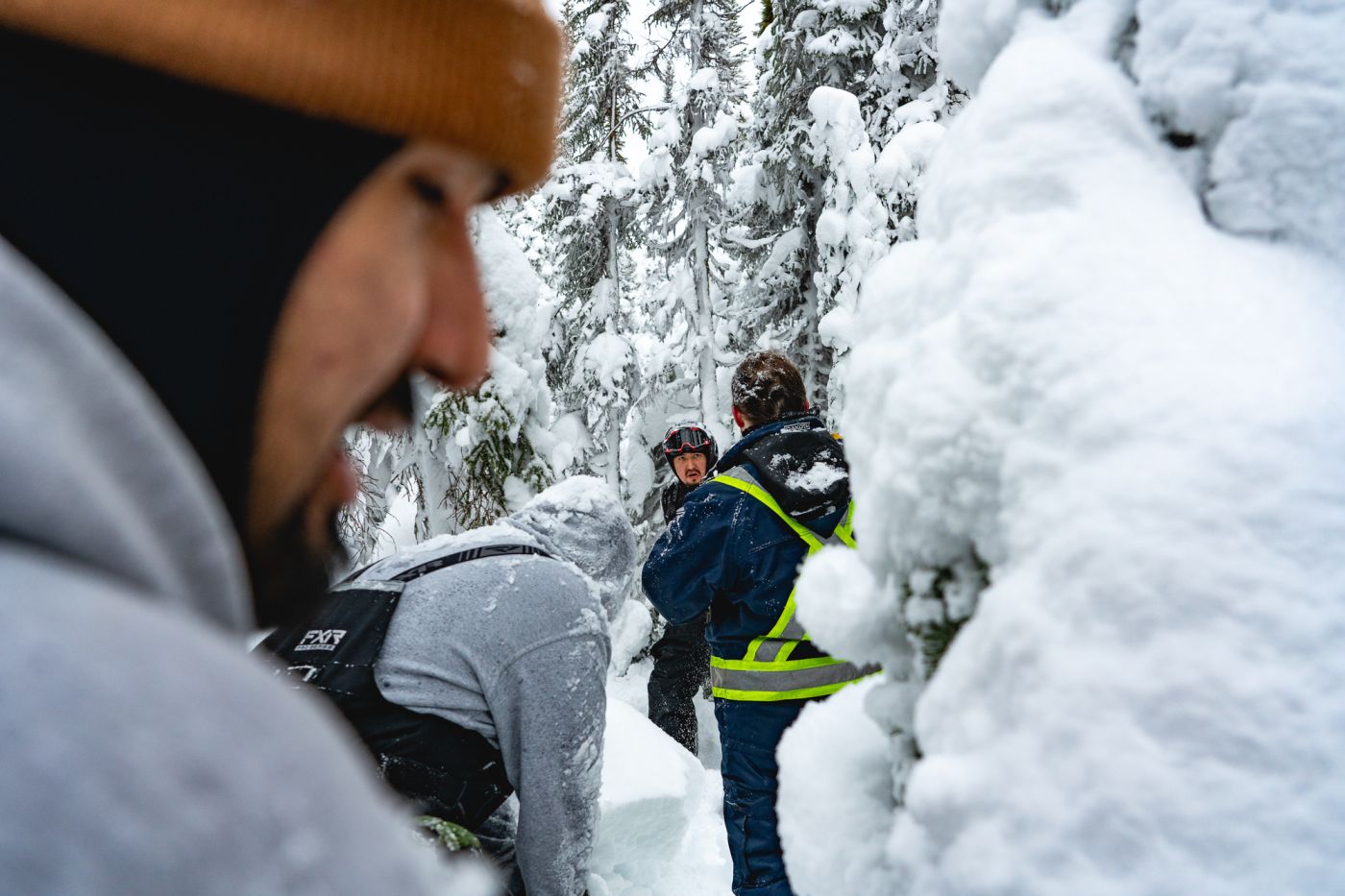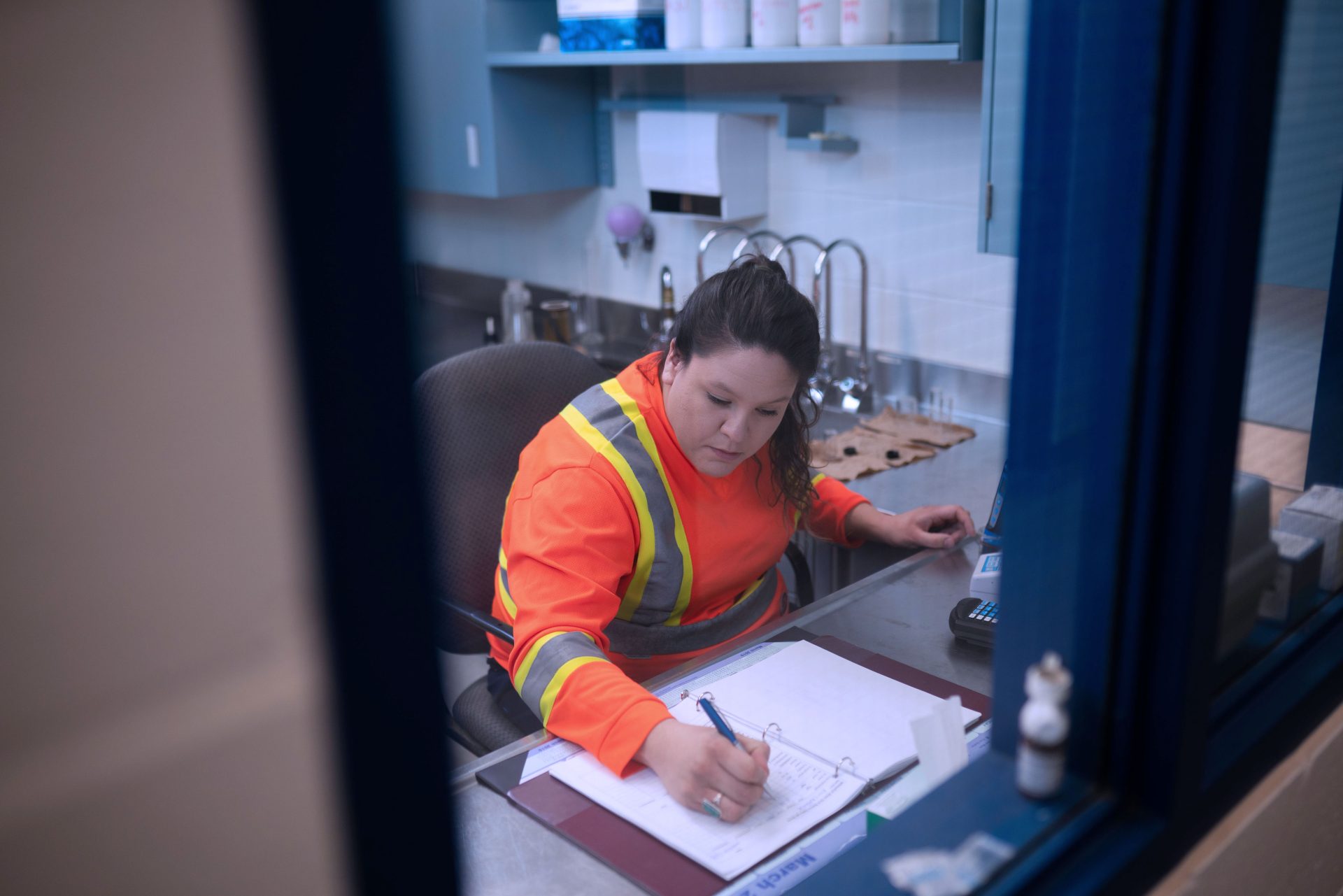Winter water monitoring can be challenging – think temperatures below -30°, biting winds, snowdrifts that can bury buildings, and lake ice so thick you need two people to drill through it. But gathering winter water data is incredibly important, especially for communities in the north. Monitoring lakes and rivers throughout the year provides a stronger understanding of the stressors on aquatic systems and how they change from season to season.
For the Water First team, February was the perfect time to bundle up for a trip to Park Lake in Labrador to work with Sheshatshiu Innu First Nation (SIFN) and the Naskapi Nation of Kawawachikamach (NNK) on a winter water monitoring workshop.
The Park Lake workshop was a unique opportunity for participants from both communities to learn and winter monitor together.
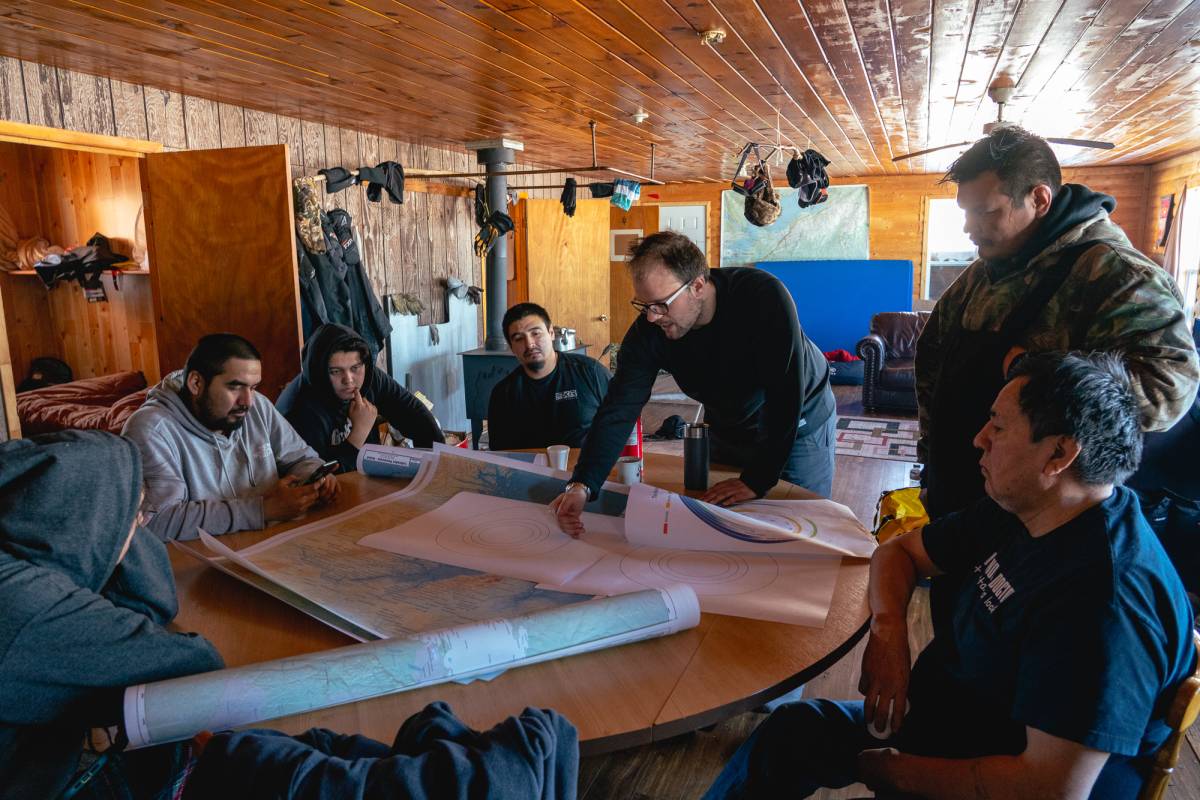
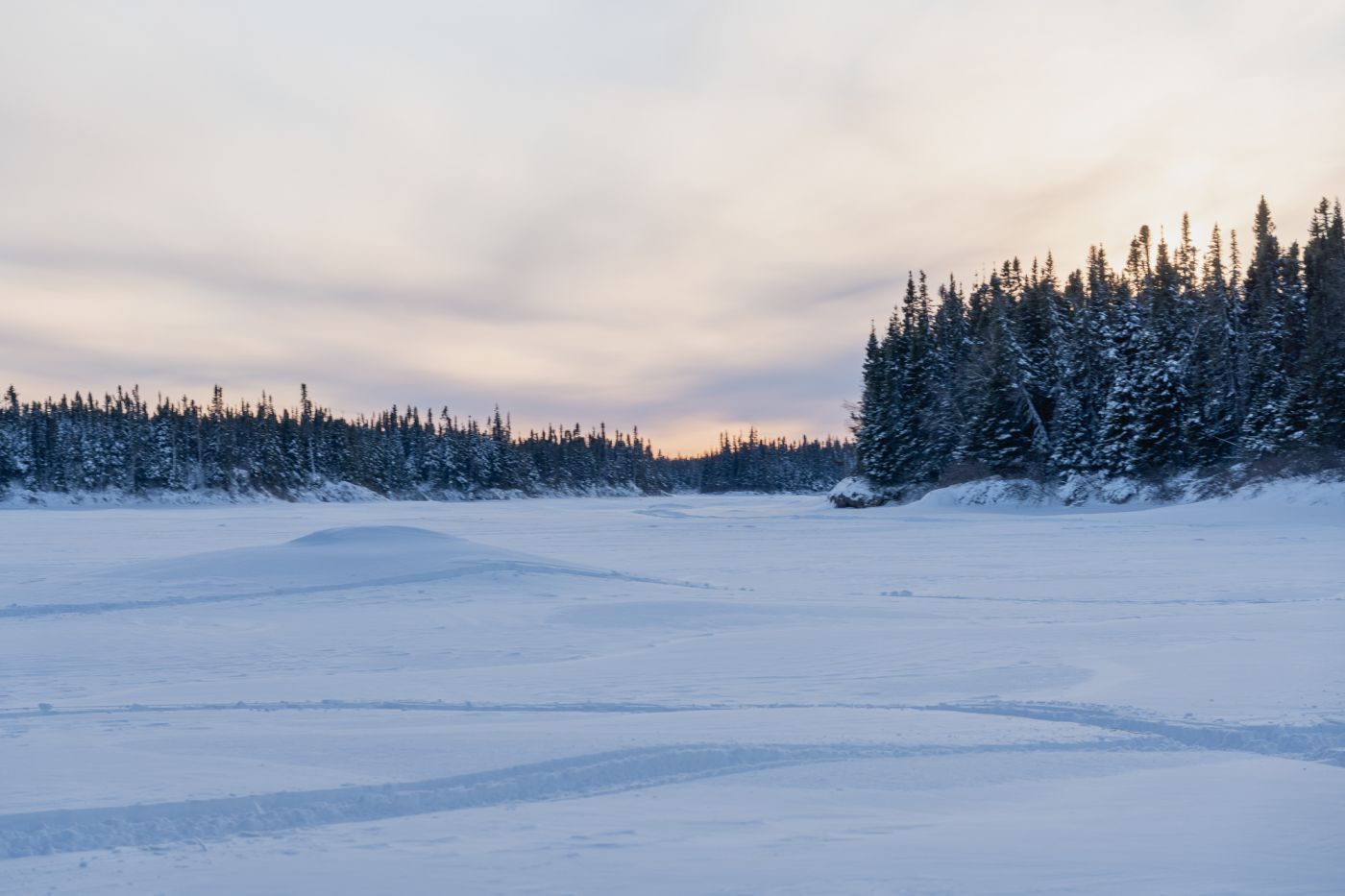
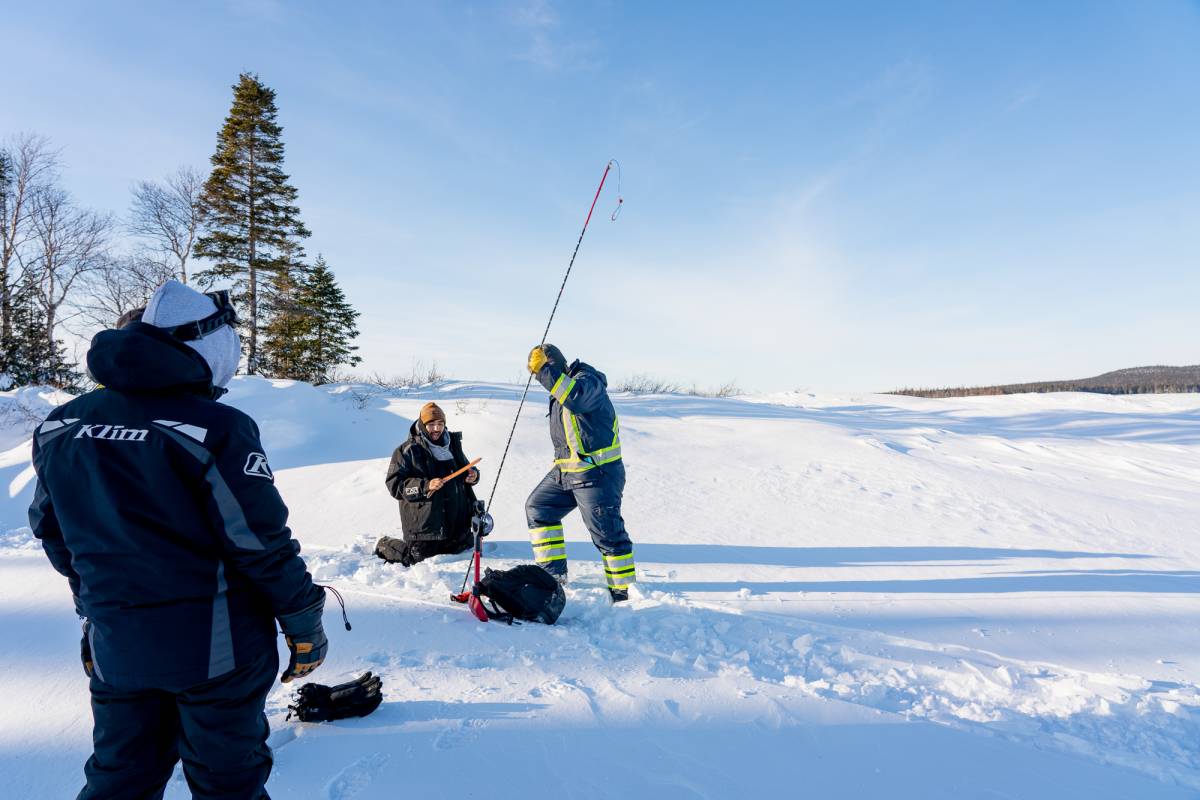
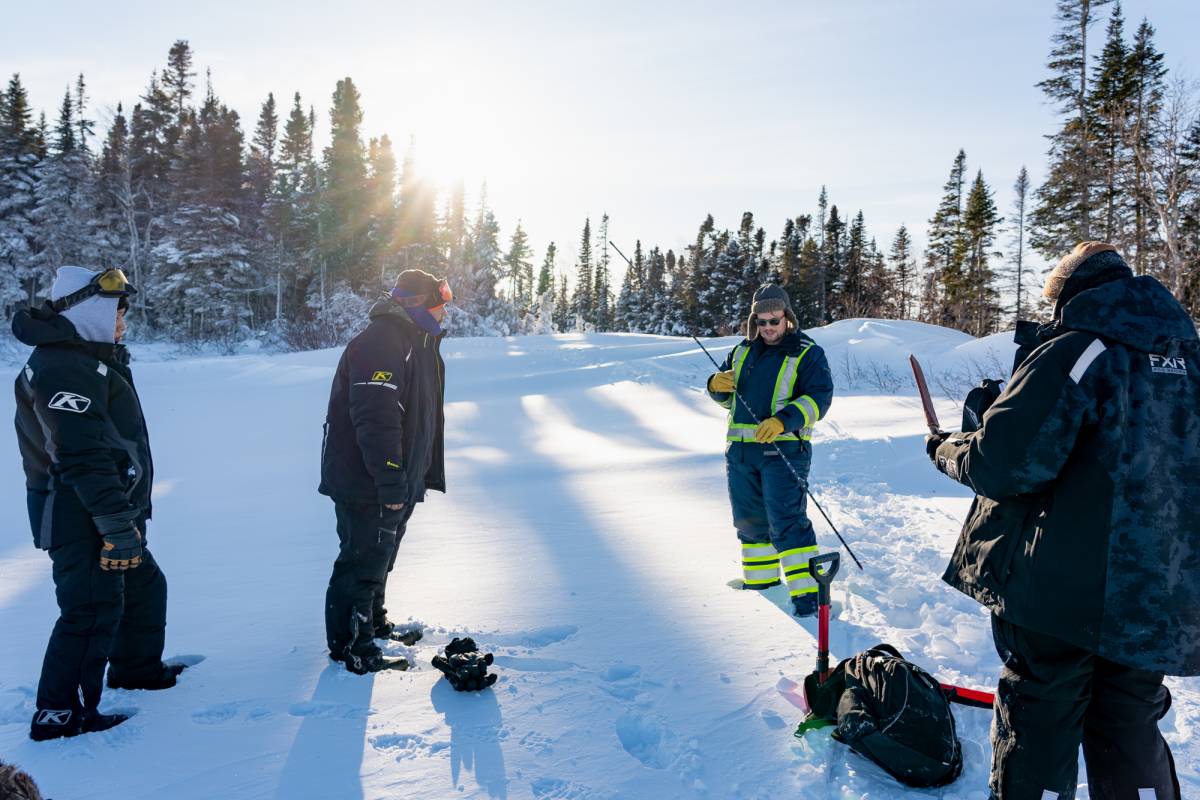
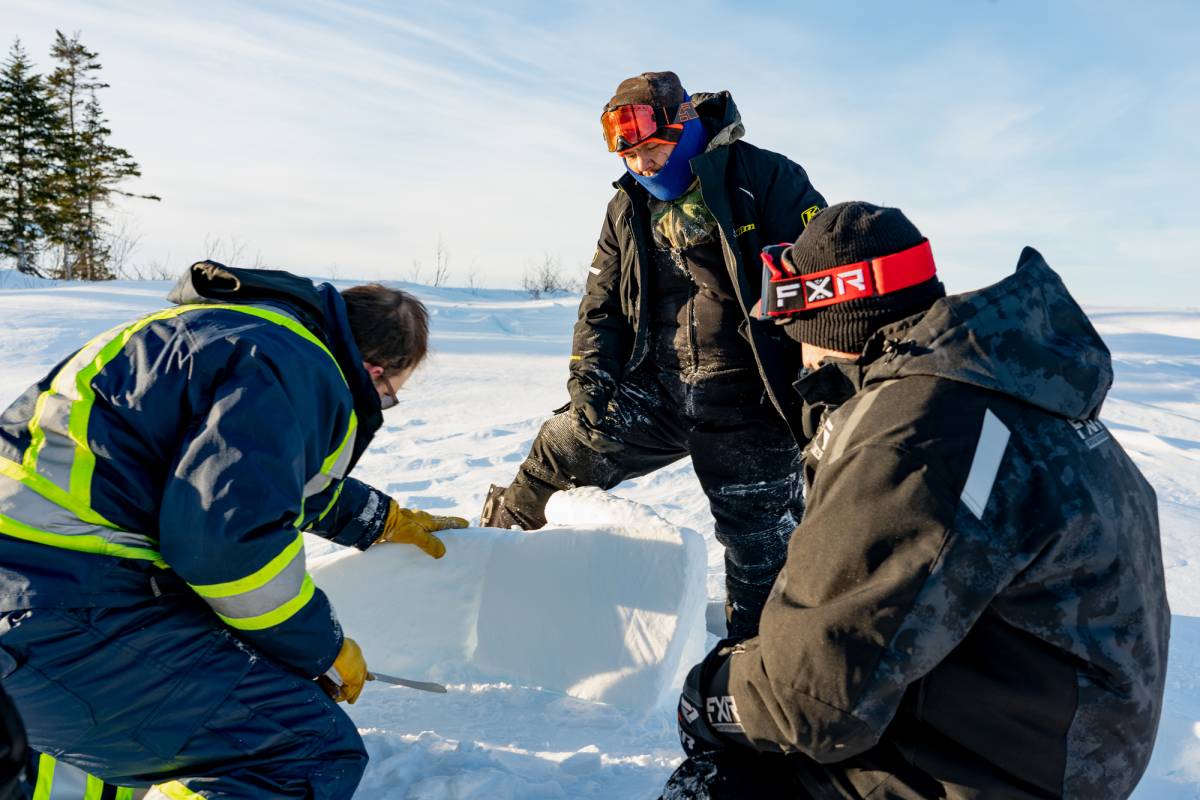
To kick off the week-long workshop, Ryan and Keegan from Water First’s Environmental Water Program delivered an introductory winter science and monitoring session. Throughout the week, the 10 participants attended sessions that explored techniques to monitor snow and ice and how these techniques can be used safely when out in the field. Together, the group learned about snow shelters, snowpack properties and processes, ice formation, strength and safety, ice measurement, and more.
Later in the week, the participants heard from a local Knowledge Keeper from Sheshatshiu, Jean Pierre Ashini. Jean Pierre, who was there for the full workshop, led his own session that covered topics such as survival on the land and Innu history.
With both communities attending the same workshop, everyone had the chance to connect with each other, exchange cultural knowledge, and learn about the different projects they are all working on. When participants from different communities can get together and learn about each other’s work, they can gather practical information and unexpected insights.
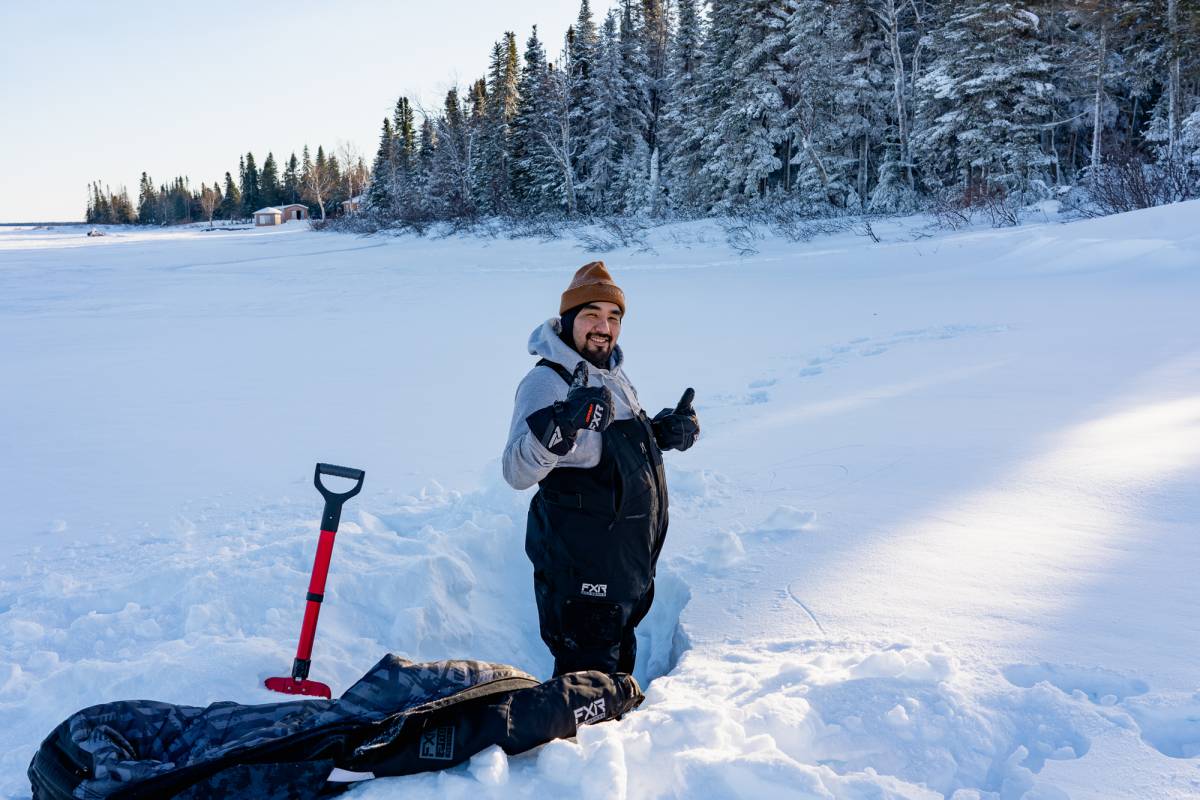
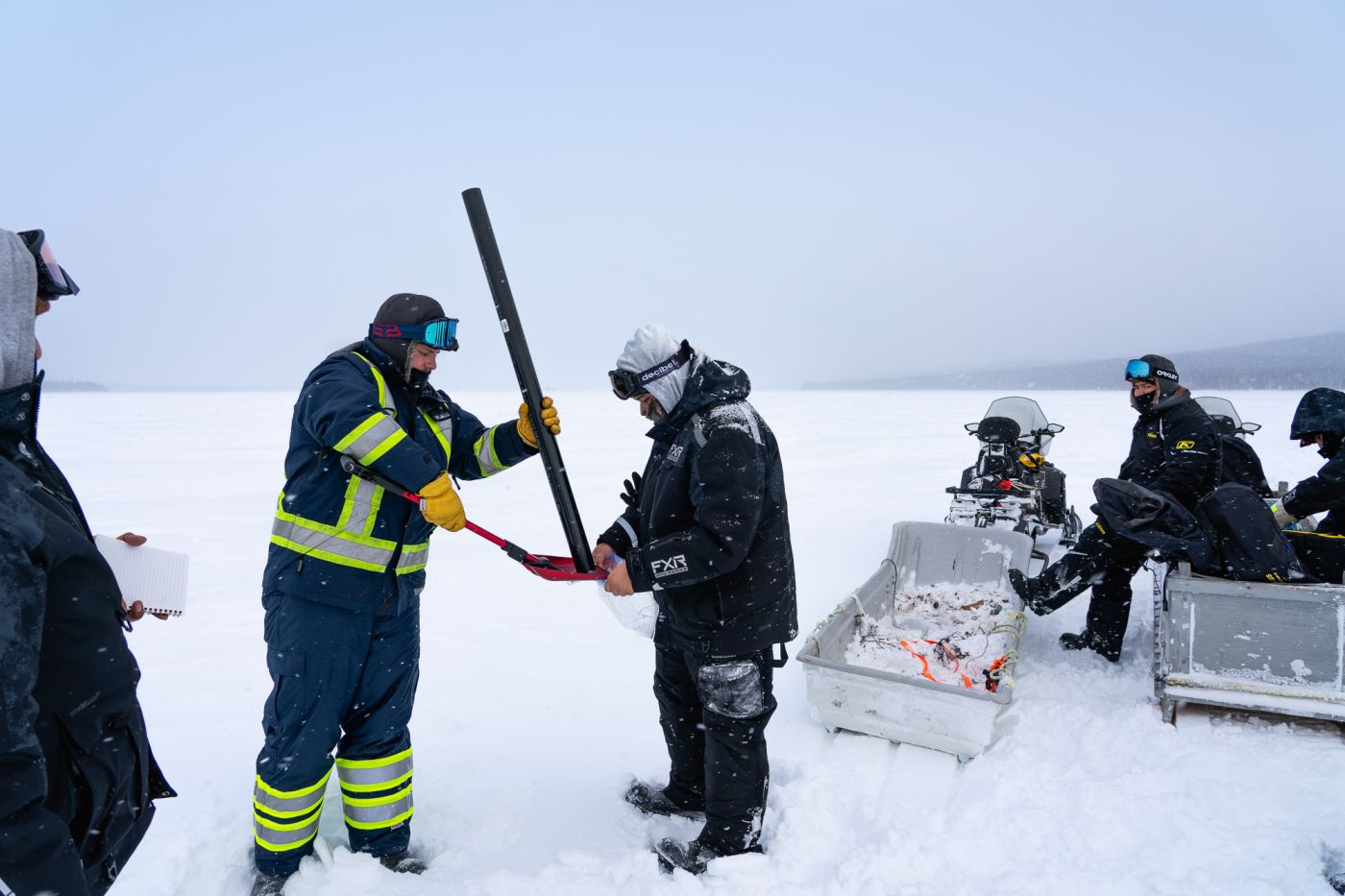
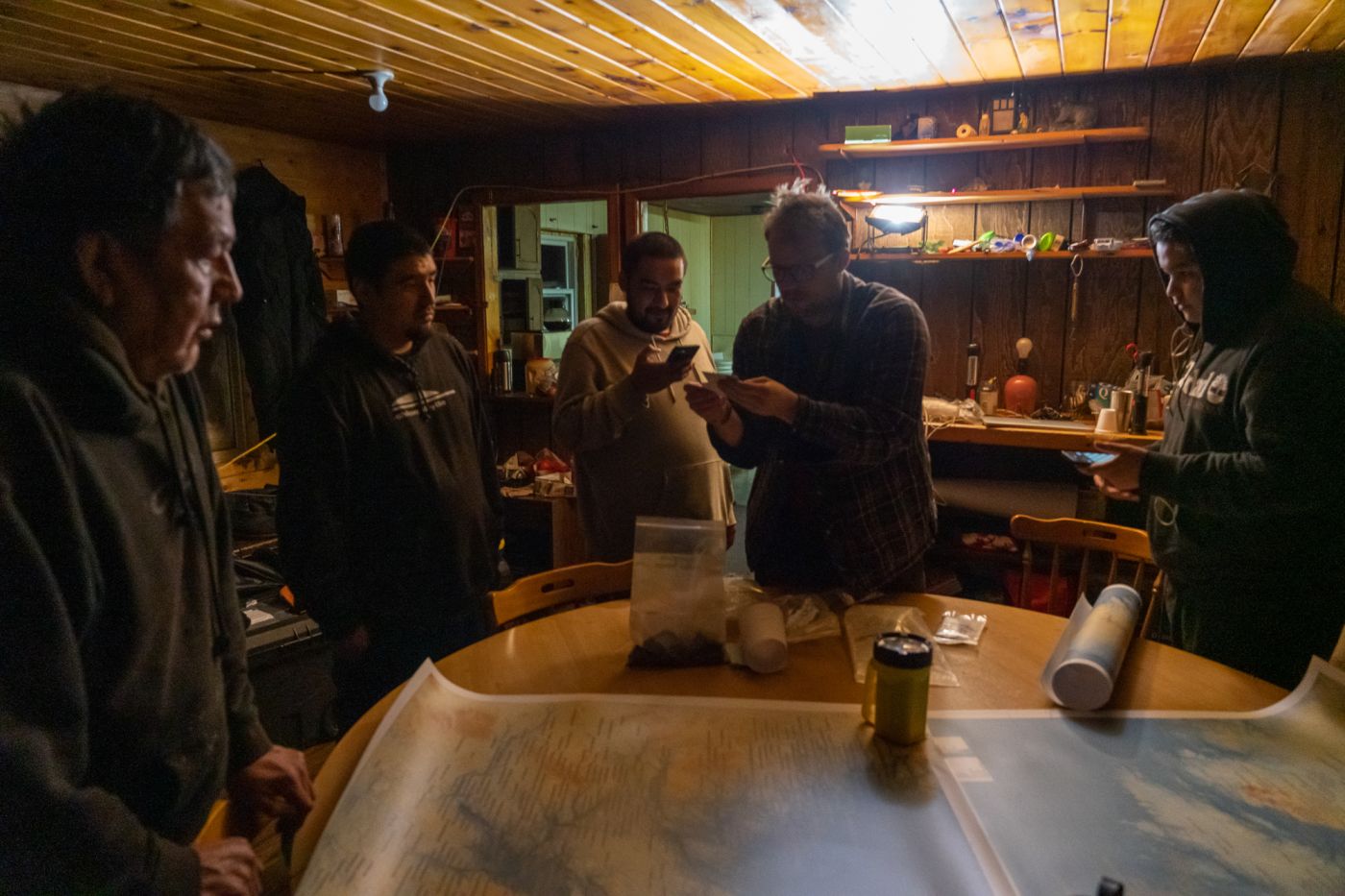
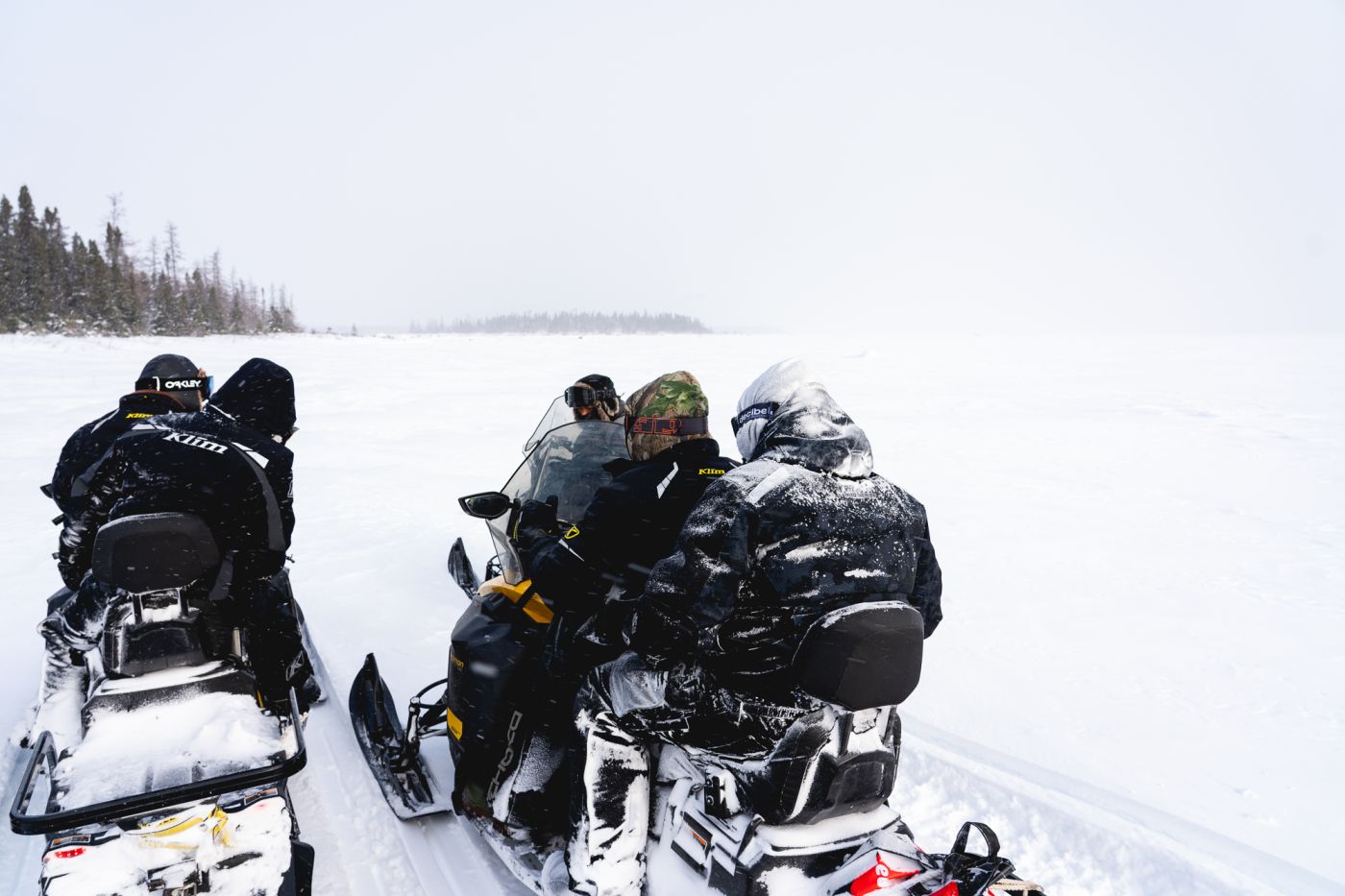
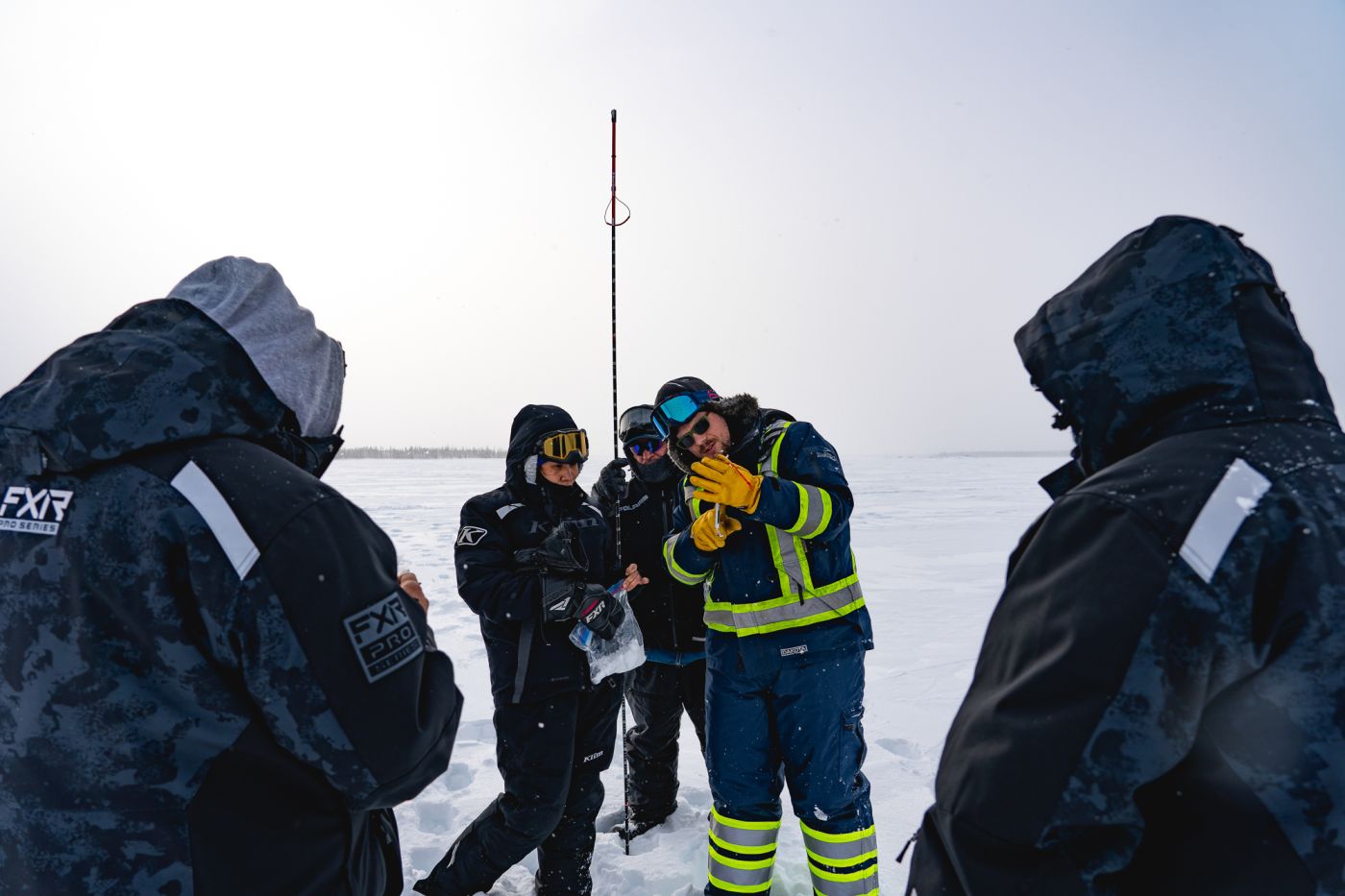
Winter workshops like these are important to communities in the north, and not just with respect to water health. Participants explore how winter science can be used to monitor snowmobiling trails for safety, how changing snow conditions can affect caribou migration patterns, or how changing amounts of snow falling can affect the overall temperature of a fishery once the snow and ice melt in the spring.
The Water First team is looking forward to warmer weather and more opportunities to expand water knowledge as our work with the SIFN and NNK communities continues.
To learn more about Water First’s Environmental Water Program, click here.
